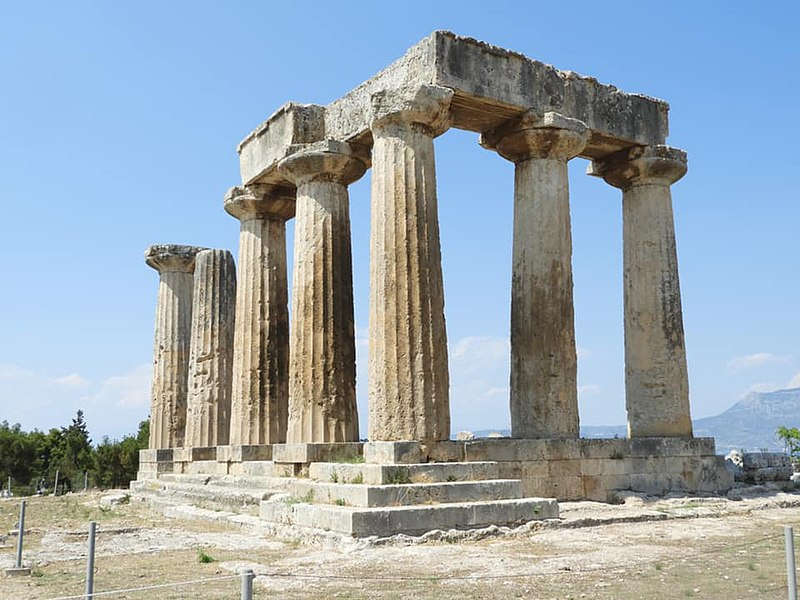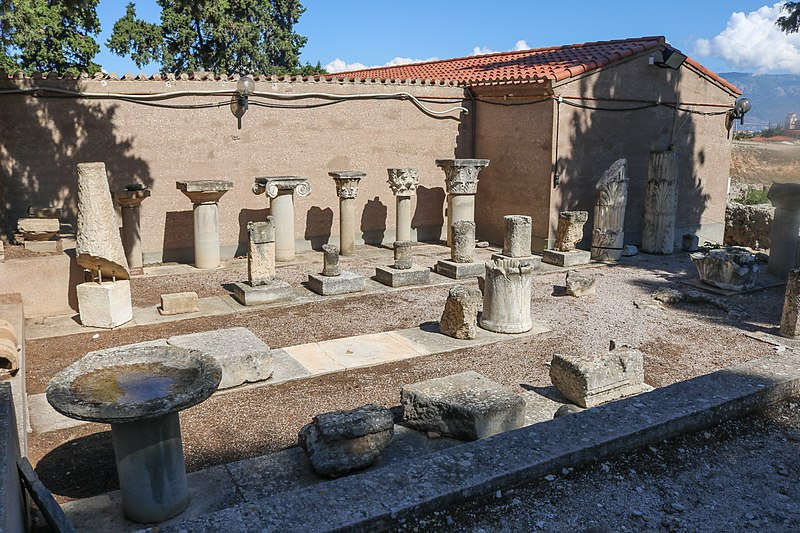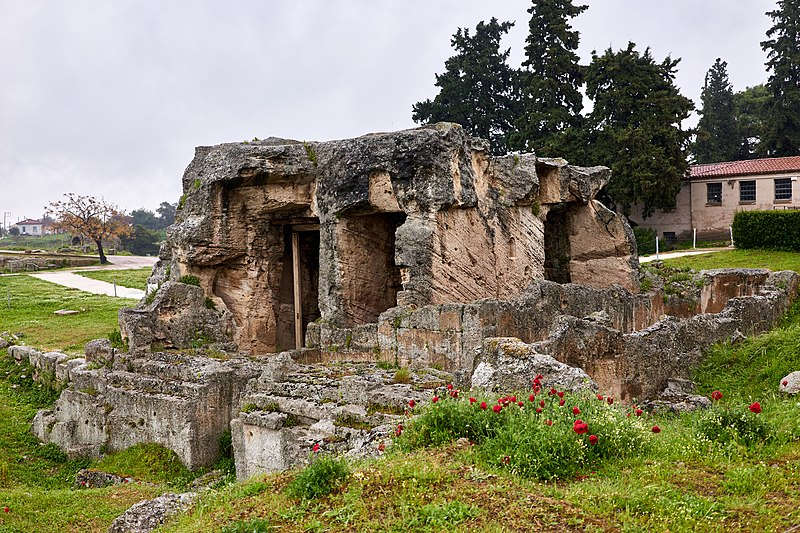Corinth
Corinth was a prominent maritime and mercantile city-state of ancient Greece as it lies on a cruical strategic location, connecting Peloponnesian peninsula to mainland Greece. It is a natural narrow channel of land between Saronic gulf, which gave them access to Aegean Sea, and the gulf of Corinth, enabling a way shorter route to Ioninan Sea, not to mention the northern part of the mainland Greece. The land was also blessed with natural springs and surronded with fertile plains and it was a perfect spot for a city to grow and soon become a centre of trade. Later, in Roman times, the city was unfortunately destroyed and rebuilt in their fasion as it became important administrative capital of Achaea, a Roman province of Greek land consisting of different regions.
Although the site was inhabited way back in time of history, the founders of the city are believed to be the Bacchiadae, descendants of King Bacchis, who ruled together as one, replacing the long line of kings. In a time between 747 and 650 BC they have, each year, elected prytanis, a sort of CEO position, to represent them and polemarchos, an army general. During this period, a lot of infrastructure was built, population grew and Corinth became a unified state, with land and naval army. Later the rulership of Corinth was seized by Cypselus who interprted the words of the oracle of Delphi as that he was destined to rule the city. He expelled the Bacchiadae and their astoricratic approach and again invoke the idea of one ruler. He clearly belived in gods and, because of vow to Zeus to offer him the entire property of Corinthians, he commanded them to make a return of all their possessions. On his orders settlers, which included his enemies that were to be exiled, were sent to spread their influence and make settlements in the north, all way up to Sicily, as well as south, to make a colony in ancient Egypt. Despite the tyranic approach that made him many enemies, Cypselus died of natural death but the tyranny has only finally ended with his grand nephew's death. The period that followed was a combination of allegiances and wars such as Peloponnesian and Corinthian wars, the great Greco-Persian war and the final Achaean war which ended in defeat and Romans taking control over the land. The Corinthians left their mark as fierce and fearless warriors and had great engineering skils as they were thought to be the invetors of the famous greek warship known as trireme.
Corinth was also famous for Isthmian games that rivaled the Olympic games from ancient Olympia and took place the year before the olympic games. It is said that the games originated as funeral games for Melicertes, also known as Palaemon. During classical period, the city was renowned for hetairas who were employed as a temple workers, all in the name of goddess Aphrodite whom the Corinthians had built a temple. The reality was that these temple workers were prostitutes and served wealthy merchants and powerful officers who were frequent visitors of the city.
Myths of gods and heroes
According to mythology, the land of Corinth was a subject of dispute between Poseidon and Helios and it was Briareus, one of the Hekatoncheries, who had to make a resolution. He decided that the Isthmus of Corinth should go to Posedion while acropolis of Corinth should be given to the Sun god. In another account by Pausanias, it was a place where the greek hero Bellerophon came to tame Pegasus, a winged horse, on the advice of Athena who appeared in his dreams and told him to go to the well of Peirene, located on the Acropolis in Corinth. The city was also a refuge for Jason and Medea when they deserted after Medea killed Pelias but instead of rejuvenation of their relationship there was more downside as Jason had fallen in love with Creusa, a princess of Corinth, and wanted to marry her. Medea then out of anger and desperaton killed the princess and their three sons and that was basically the end of the hero's will to live. Another hero was mentioned to have come to Corinth on his journey to Athens. It was Theseus who had to overcome a bandit by the name of Siris who guarded the passage and tortured travellers.
Monuments of ancient Corinth
The most popular monuments of Corinth are Acrocorinth which is the acropolis, 575-metre monolithic rock behind walls, that dominates the plain and temple of Apollo, the remains, quite well preserved, still stand to this day. Then there are also remains of ancient theatre that could seat approximately 15 thousand spectators and all sorts of lapidary remains that can be seen in musem built in the nearby area. Remains of Glauce fountain can also be found on the site. Back in ancient days, there were also temples dedicated to Poseidon and Aphrodite.
Temple of Apollo

Built by Cypselus, the famous tyrant of Corinth
Lapidary remains

Ancient architectural remains of Corinth
Glauce Fountain

The fountain of Creusa(Glauce), a daughter of king Creon